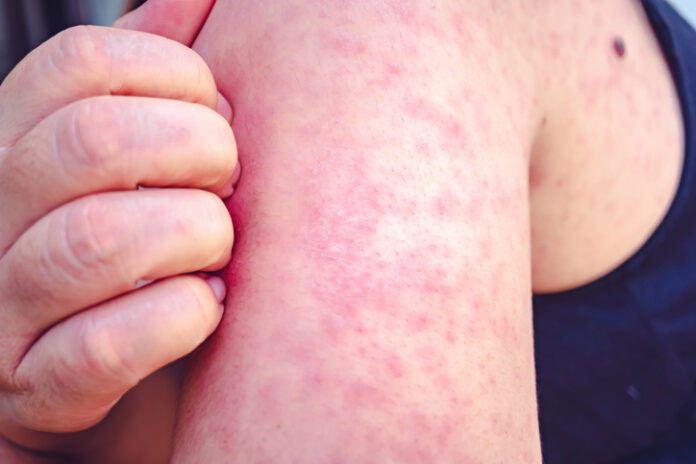ACT Chief Health Officer, Dr Kerryn Coleman, has confirmed a case of measles in the ACT.
Dr Coleman said the individual had likely acquired the infection on a recent overseas trip, prompting a reminder that the best way to protect yourself and your family against measles is vaccination, particularly for those travelling overseas.
“ACT Health is currently responding to a case of measles,” said Dr Coleman.
“As part of ACT Health’s response, we are following up identified contacts in line with national guidelines.”
The case attended the following public venues while infectious:
- Flight QF1433 from Sydney to Canberra on Wednesday 15 February 2023
- Canberra Airport between 11:00 to 11:30 on Wednesday 15 February 2023
- Canberra Centre on Wednesday 15 February 2023
- David Jones between 12:30 – 1:00PM
- Bed Bath and Table between 12:30 – 1:30PM
- Myer between 1:00 – 1:45PM
- Madeleine’s Café on Level 2 of the Marian Building at the Calvary Public Hospital Bruce between 3:00 – 3:30 PM on Wednesday 15 February 2023.
People who attended these sites at the times listed are at very low risk of exposure to measles, Dr Coleman said.
In line with national guidance, ACT Health is advising people who attended these locations at the listed times to monitor for symptoms of measles from 22 February until 5 March 2023.
ACT Health are directly contacting the people who are higher risk of exposure.
If symptoms of measles develop, people should seek medical advice, advising their health care provider before they arrive so that appropriate infection control precautions can be put in place to stop the spread of the infection.
Symptoms include:
- Fever
- Tiredness
- Runny nose
- Sore eyes
- Cough
- Rash
People generally develop symptoms 7-18 days after being exposed, with 10 days being most common. The infectious period lasts from 4 days before the rash develops and then a further 4 days afterwards.
The virus is spread from an infectious person during coughing or sneezing or through direct contact with secretions from the nose or mouth.
“Measles is a serious disease and is highly contagious among people who are not fully immunised,” said Dr Coleman.
“Whenever a case of measles is identified in our community, it is a strong reminder that the best way to protect yourself and your family against measles is vaccination.”
“Two doses of Measles Mumps Rubella vaccine (MMR) are required for immunity against measles and are given to children in Australia at 12 and 18 months of age. However, the vaccine can be given at any age after 9 months.”
“With many more people travelling following the end of pandemic border restrictions, we are encouraging people to check their immunisation status and get up to date if needed before travelling.”
For further information about measles, visit the ACT Health website at: https://www.health.act.gov.au/sites/default/files/2018-09/Measles.pdf


